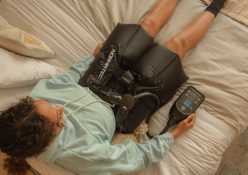Often called ‘the silent killer’, depression is very real and should be treated as such. Cindy Tilney breaks it down
The term ‘depressed’ is used fairly freely in society today, but this has led to a blurring of boundaries between two different states of being. While feeling a bit ‘down’ is a perfectly natural reaction to life’s frequent curveballs, depression is a real medical condition that can require careful treatment, explains Cape Town psychologist David Rosenstein.
Scary stats
According to numbers from the World Health Organization (WHO), more than 350 million people worldwide suffer from clinical depression, which is much more serious than its non-clinical cousin, and is classified according to very strict criteria. True depression is still largely shrouded in stigma and is too often not discussed by sufferers. As a result, it’s sometimes referred to in professional circles as a ‘hidden burden’. The WHO has estimated that, by 2020, unipolar depression will be the second largest cause of global disability burden.
Signs and symptoms
Depression occurs across a spectrum: major depressive disorder (unipolar depression) at one end and bipolar disorder at the other.
Unipolar depression This is characterised by unpleasant and all-encompassing ‘low’ feelings known as dysphoria.
Bipolar disorder Periods of mania, with sufferers going from manic highs (which can be either euphoric, or dysphoric and distressing) to dysphoric lows.
While everyone goes through periods of sadness, there are strict criteria defining episodes of depression: it must last for at least two weeks; it also has to include disturbances of psychomotor functions, such as sleeping, eating and libido; and it interferes with normal daily activities, such as social or professional functioning and relationships.
What’s at play?
What causes depression is a difficult question to answer. ‘But the majority of professionals no longer distinguish between “nature and nurture” when it comes to defining depression, because there exists such a complex interplay between the two,’ says David.
‘Negative thinking patterns and environmental factors can affect neurotransmitters in the brain involved in depression. But likewise, those very same neurological disturbances can then result in negative emotions and behaviour, which in turn reinforce a state of depression. If you’re feeling low, for instance, you may resist going out and socialising, and then feel lonely and as if no one likes you. So it can be a vicious cycle.’
Getting treatment
Depression is a medical condition, but the good news is that it is treatable. David says a two-pronged approach including antidepressant medication and therapy is often the best option. ‘Antidepressant medication can vastly improve a person’s quality of life and get them to the point where they can actively engage in therapy.
‘Such medication alone, however, is not effective – it can help in terms of mood management, but therapy works to shift deep-rooted thought patterns that might be causing the depression.’
While private therapy is expensive, a number of organisations offer free emergency helplines and counselling services for those in need (see Sadag details below).
Points to consider
If you have three or more of these symptoms, you could be suffering from depression.
• Disturbed sleep (sleeping too much or too little)
• Changes in appetite (weight loss or gain)
• Physical aches and pains
• Lack of energy or motivation
• Irritability and intolerance
• Loss of interest or pleasure
• Feelings of worthlessness or guilt
• Difficulties with decision-making or concentration
• Noticeable restlessness or slow movement
• Recurring thoughts of death or suicide
• Altered sex drive (reduced or increased libido)
Helping hand
Sadag runs a toll-free helpline, open seven days a week from 8 am to 8 pm. For free telephonic counselling, call 0800 20 50 26 or 0800 70 80 90, or send an SMS to 31393. For more information, visit www.sadag.org.








